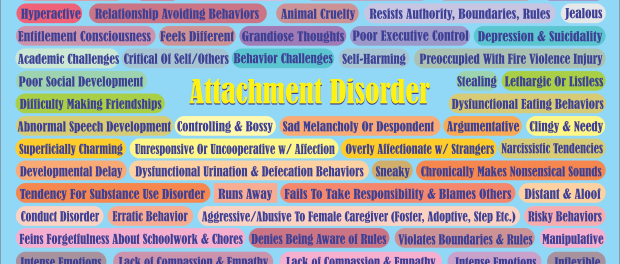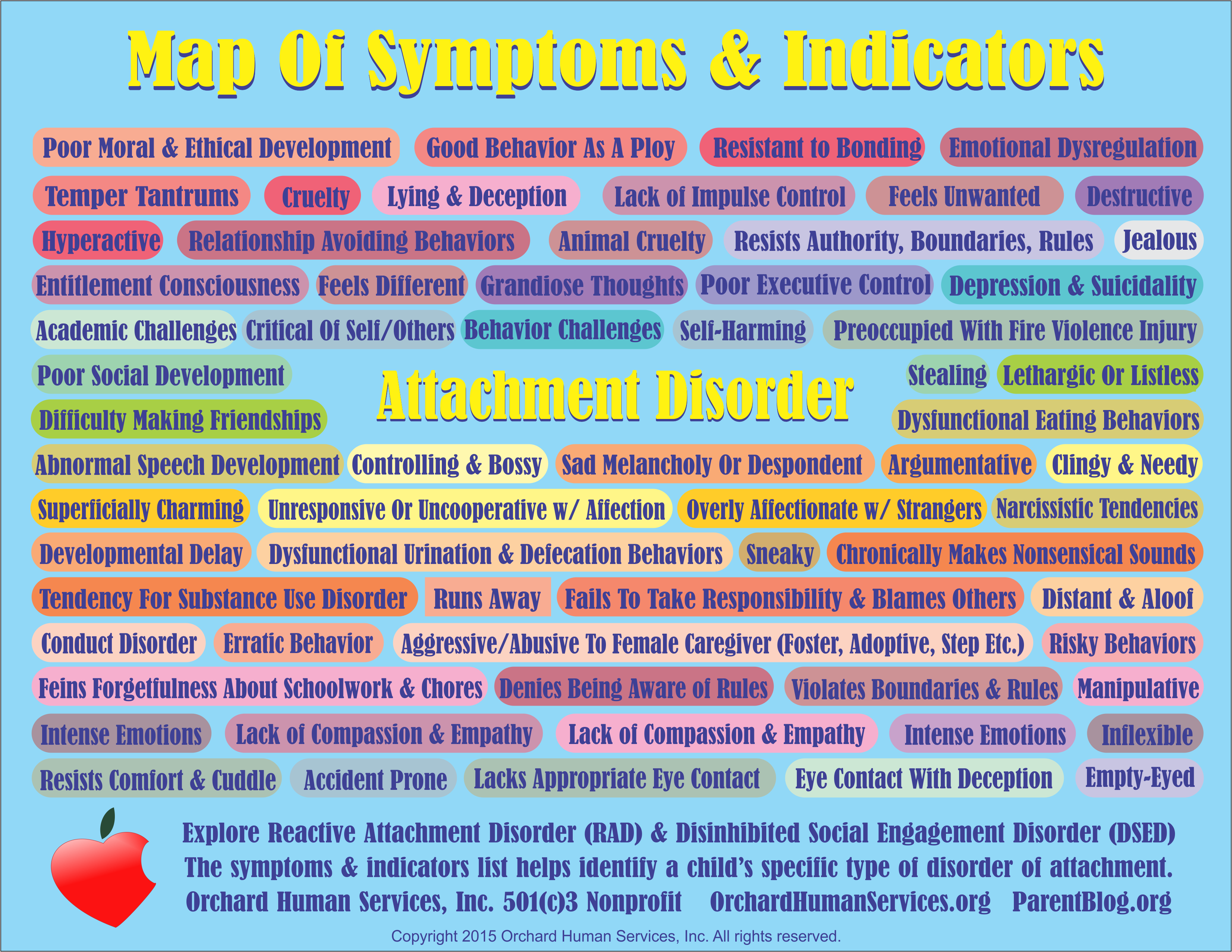Defining Attachment Disorders: RAD & DSED
 Map of Symptoms and Indicators for Attachment Disorders including RAD and DSED from OrchardHumanServices.org ParentBlog.org and DarleenClaire.com
Map of Symptoms and Indicators for Attachment Disorders including RAD and DSED from OrchardHumanServices.org ParentBlog.org and DarleenClaire.com
Disorders of attachment are challenging and confounding conditions to understand. The scope of possible symptoms and indicators that define attachment disorders is so big and wide that must be displayed on a map in order to make sense of the chaos. The type of attachment disorder affecting a child is identified by that little one’s unique combination of symptoms and indicators from the map below. RAD, or Reactive Attachment Disorder, and DSED, or Disinhibited Social Engagement Disorder, have some common characteristics but also have some distinct differences. For example, the child with RAD is more likely to be emotionally distant toward others than the child with DSED who is more likely to be overly friendly with strangers.
Parents must sit with this map for a while to begin to sort out the many confusing behaviors of children with disordered attachment. These children may exhibited completely conflicting tendencies, such as being over friendly some days but being withdrawn and uncommunicative other days. No single symptom or even small group of indicators is enough to diagnose a disorder of attachment. Instead, attachment disorder is a complex and confusing condition that takes training, insight, and patience to diagnose.

Map of Symptoms and Indicators for Attachment Disorders including RAD and DSED from OrchardHumanServices.org ParentBlog.org and DarleenClaire.com
Please visit OrchardHumanServices.org to learn more about diagnosing and treating Attachment Disorder. Darleen Claire Wodzenski of the Orchard has shared some helpful articles to point parents on the right track toward identification and intervention. While the concept of recovery from Attachment Disorder is unrealistic, children are able to begin to heal from the condition much in the way Veterans are able to heal from PTSD. Survivors of trauma and abuse who suffer from PTSD may never completely overcome the tendency to react badly to highly stressful situations. With proper care and treatment, however, survivors of trauma may learn to control and manage their PTSD symptoms. In the same way, children of Attachment Disorder are able to learn ways to manage disturbing symptoms and acquire coping strategies that relieve suffering and dysfunction.
The Orchard Human Services, Inc. is a 501(C)3 nonprofit that promotes learning, growth, and development of children who suffer from developmental, learning, and mental health challenges. The Orchard provides high quality direct services to children and their families to increase parental capacity to respond therapeutically to the needs of the child while increasing the competencies and resilience of the entire family.
 Please visit Orchard at OrchardHumanServices.org or call Darleen Claire (770) 686 0894.
Please visit Orchard at OrchardHumanServices.org or call Darleen Claire (770) 686 0894.
















